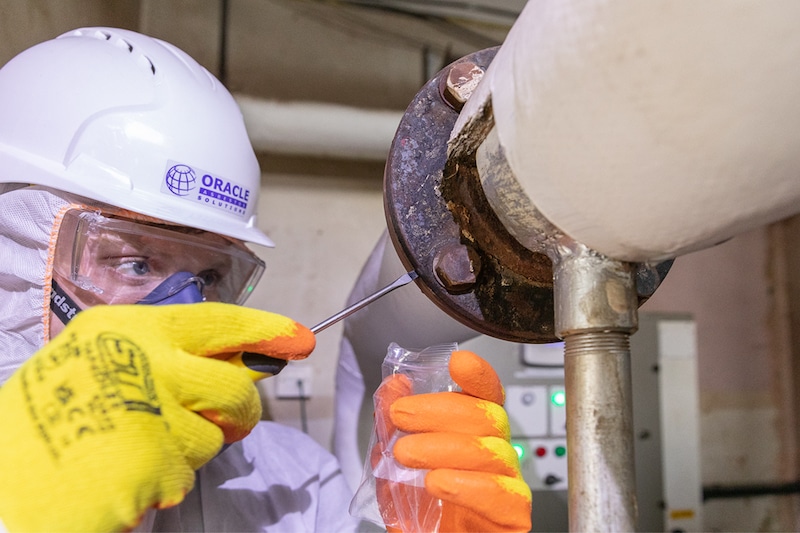 Asbestos, a fibrous mineral that was widely used in building materials until its ban in the late 1990s, still poses a significant risk to health and safety. Exposure to asbestos can lead to severe respiratory problems and even cancer. For this reason, it is essential to know if your building contains asbestos. Enter asbestos surveys, a comprehensive inspection that evaluates the presence and condition of asbestos in a building. In this article, we will be exploring the procedure and benefits of asbestos survey.
Asbestos, a fibrous mineral that was widely used in building materials until its ban in the late 1990s, still poses a significant risk to health and safety. Exposure to asbestos can lead to severe respiratory problems and even cancer. For this reason, it is essential to know if your building contains asbestos. Enter asbestos surveys, a comprehensive inspection that evaluates the presence and condition of asbestos in a building. In this article, we will be exploring the procedure and benefits of asbestos survey.
Types of asbestos surveys
Before you schedule an asbestos survey, it is essential to know the different types of surveys available. The most common types are:
Management surveys: This type of survey is essential for maintaining and managing asbestos in your building. The surveyor will inspect all accessible areas of your building for asbestos-containing materials and assess their condition. The survey will identify asbestos-containing materials that may be disturbed during normal occupancy, maintenance, or DIY work.
Refurbishment surveys: This type of survey is performed before any refurbishment or demolition work is carried out on a building. The surveyor will identify any asbestos-containing materials that may be disturbed during the proposed work.
Benefits of asbestos surveys
The benefits of asbestos surveys are numerous and cannot be overstated. Here are some of the advantages of an asbestos survey:
Health and safety: Asbestos surveys are essential for protecting the health and safety of individuals. Once you know if your building contains asbestos, you can take necessary precautions to prevent exposure, such as sealing or removing asbestos-containing materials.
Legal requirements: Asbestos surveys are a legal requirement for non-domestic buildings built before 2000. Failing to comply with this requirement can result in hefty fines or even imprisonment.
Cost savings: An asbestos survey can help you identify any asbestos-containing materials, which can be costly to manage or remove. Knowing the presence and condition of asbestos in your building allows you to plan for and mitigate any associated costs.
Procedure of asbestos surveys
The procedure of an asbestos survey is straightforward, and it typically involves the following steps:
Inspection: A surveyor will inspect your building for asbestos-containing materials. The surveyor will inspect all accessible areas of the building and take samples of any suspected materials.
Analysis: The samples will be sent to a laboratory for analysis. The laboratory will test the samples to determine if they contain asbestos and report the findings to the surveyor.
Report: The surveyor will compile a report that outlines the findings of the survey. The report will detail the location, type, and condition of any asbestos-containing materials found.
Choosing an asbestos surveyor
Choosing an asbestos surveyor is a crucial decision that should not be taken lightly. Here are some factors to consider when choosing a surveyor:
Qualifications and certifications: Ensure that the surveyor is appropriately qualified and certified. The surveyor should hold relevant certifications, such as BOHS P402, and should be a member of a professional body like the UK Asbestos Training Association.
Experience: Choose a surveyor with relevant experience in asbestos surveys. An experienced surveyor will be well-versed in the procedure and will be able to identify potential risks and hazards.
Reputation: Research the surveyor’s reputation and read reviews from past clients. A reputable surveyor will have a track record of providing reliable and professional services.
Conclusion:
In conclusion, asbestos surveys are essential for protecting the health and safety of individuals and complying with legal requirements. The benefits of asbestos surveys include cost savings and the identification of potential hazards. The procedure of an asbestos survey involves inspection, analysis, and reporting. When choosing an asbestos surveyor, consider their qualifications, experience, and reputation. By conducting an asbestos survey, you can identify any asbestos-containing materials present in your building and take necessary precautions for safety.


